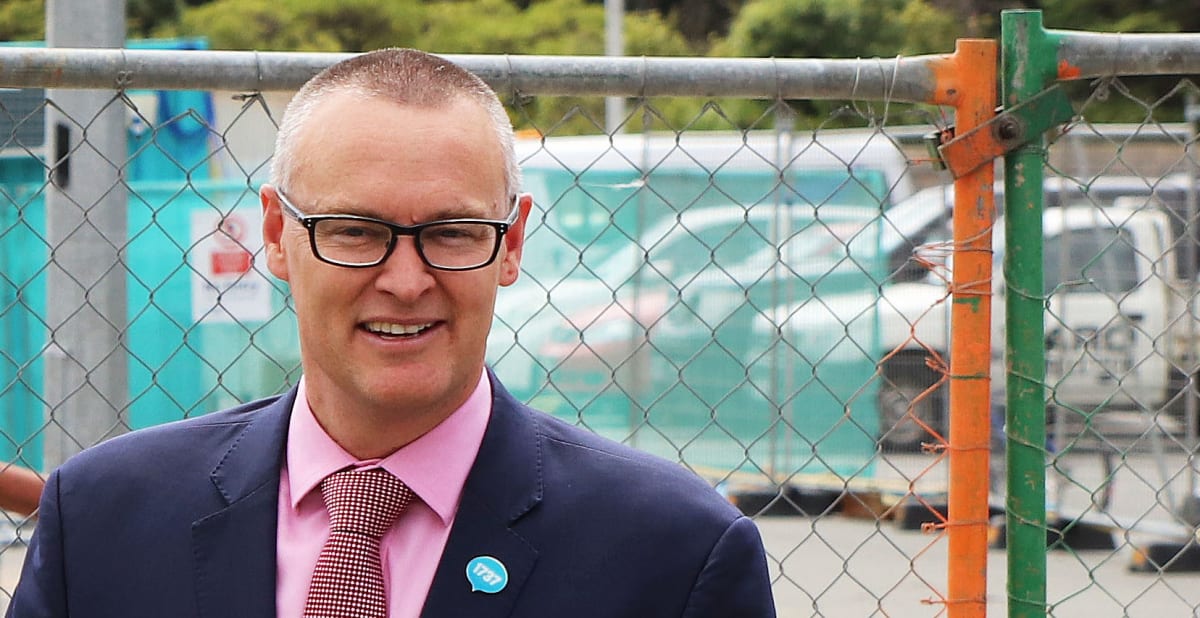
The postponement prediction comes as the Government moves to give itself wiggle-room to do exactly that. David Williams reports
Emboldened by insider information, and bristling after vague answers from the Statistics Minister, Michael Woodhouse, National’s statistics spokesman, is picking next year’s census will be postponed.
“I’m confident the Government will announce a delay of the next census till 2024,” the Dunedin MP tells Newsroom.
Woodhouse says his sources – which have got to be from high-up within Stats NZ or Clark’s office – state the Minister has asked for a Cabinet paper to be prepared listing the options for a delay.
“I just don't think they’re going to risk the embarrassment of a similar debacle, as they oversaw in 2018, six months out from the next election,” Woodhouse says. “I expect that announcement will be made around July or August.”
The Government will blame Covid, he says. “The real reason is a lack of lessons learnt by the Government after 2018 and a lack of energy by the Minister in getting things organised.”
(Of course he’s going to take a political slant, but the National MP does admit Covid has been hugely disruptive.)
Lending credence to the postponement prediction is the revelation the Government is giving itself wiggle-room to do exactly that.
“It is my preference as Statistics Minister that a census is delivered in 2023 as planned,” Clark says in an emailed statement. “However, given the uncertain context and uncertainties relating to community preparedness to participate, it is prudent that we explore establishing a legislative mechanism that would allow for a change in the timing of the next census, should it become apparent that this is necessary.”
NZ's faltering census engagement
The Data and Statistics Bill had its first reading in Parliament last November, and is being considered by the Governance and Administration Select Committee.
One clause says the government statistician “must” take a census of the population and dwellings in 2023 and in every fifth year after that. That’s the “legislative mechanism” Clark thinks needs adjusting.
Last month, Woodhouse asked Clark in a written parliamentary question if a Cabinet paper was being prepared about the census. The Minister replied: “There are currently active conversations on this subject and I do not believe it is in the public interest to disclose this information at this time.”
In another question, Clark was asked if he’d expressed concern at Stats NZ’s ability to successfully undertake Census 2023 in the current timeframe. Stats NZ reported it was currently on track to meet key milestones, the Minister said. “I have discussed the census timeframe with Stats NZ in light of constraints caused by the current Omicron outbreak.”

It's worth remembering preparation for the disastrous 2018 census was disrupted by the Kaikōura quakes, which damaged Stats NZ’s Wellington headquarters, and a Civil Defence emergency cut short a dress rehearsal in 2017.
In the lead-up to next year’s census – census day is March 7 – the pandemic has been the obstruction.
Last year’s field test, in Hamilton and Huntly, happened under level two. Right now, a census test involving about 21,000 houses – and some hotels and retirement complexes – is underway in Auckland and Tauranga under the red light setting.
The mock census day was last week, on March 8.
It’s an important dry-run for Stats NZ, as it tests on-the-ground operations, which started on Valentine’s Day, and helps confirm the census’s final design.
Simon Mason, deputy government statistician and deputy chief executive of census and collection operations, says the dress rehearsal has been necessarily diminished by Covid-19.
In the lead-up to the test, Stats NZ decided to remove the “assist” element. That’s the most intensive part of a census, in which collectors usually help people, in their homes, to complete forms. Because of Covid, the entire test is non-contact.
“In consideration of the descoping of assist activities from the 2022 census test, Stats NZ has commenced a separate piece of work to evaluate assurance of the assist part of the 2023 census strategy,” Mason says.
“This analysis will include research with respondents (the public) and data users, advice from expert panels, and feedback from a series of engagements we will hold with Iwi and Māori, and customer and community stakeholders.”
Let’s remember, though, an independent review of the 2018 census said: “Due to the lack of testing, Statistics NZ did not appear to fully understand how the various components of the model needed to work together to achieve success.”
Not being able to conduct a real-world simulation is a blow for a census that aims to right the wrongs of four years ago – too few field staff, not enough paper packs, the slow delivery of forms to households, and a lack of face-to-face assistance.
“Testing is critical,” the review said.
Mason confirms there are other problems.
It’s difficult to find staff in a pandemic-fuelled labour market – despite Stats NZ signing a $42 million external recruitment contract for the census with PersolKelly. It needs to find 30 more “census operations area managers” by June, and 320-350 “team leaders” by November.
There have also been delays in finalising the system for processing results and incorporating outside data sources.
As reported in January, the overall cost of the census is expected to rise to $250 million, almost double the last one.
The situation has apparently spooked Stats NZ. Woodhouse says there is concern at reasonably high levels of the statistics department about the state of preparation for next year.
“I’ve had it described to me as senior management being concussed following the last census and that there's actually a lack of confidence from the leadership team that has not improved.”
Clark is putting on a brave face, repeating a written answer he gave to Woodhouse: “Stats NZ reports it is currently on track to meet key milestones to deliver the next census in March 2023.”
Mason, the deputy government statistician, follows his Minister’s line, saying Stats NZ is “well-positioned”, with carefully planned mitigations and controls, to deliver the census between February and April next year.
He doesn’t sugar-coat the challenge, however. “The census programme is experiencing significant external and environmental risk, because of the spread of Covid-19 and the impact of that on community priorities and sentiment.”

Mason points to the “evolving” Covid disruption but he adds another twist: “There are indicators to suggest communities may not be prepared to participate in a census.”
This might not be entirely about potential health risks, but trust in the Government.
Last year, Stats NZ scrapped a “value of data” (VOD) public information campaign aimed at the dress rehearsal areas because of community sentiment.
A note to the Census Programme Board said: “It is recommended we put the launch of VOD on hold. This is due to strong feedback from Community Engagement about community fatigue and an unwillingness to engage in more messaging from Government (environment is saturated by vaccination/Covid messaging and growing dissatisfaction around the mandatory vaccination topic).
“To progress as planned will introduce unnecessary burden with communities and an unwanted campaign (waste of time and budget within current climate).”
The census is hugely important – the results are influential in government and council decisions about building schools, the size of new hospitals, and when to upgrade roads and where to extend public transport routes.
It’s also important to raise the plight of vulnerable New Zealanders and address inequities.
In its submission to the Data and Statistics Bill, Blind Citizens NZ said disabled people have poorer outcomes in the vast majority of social statistics than those enjoyed by non-disabled people. Without reliable data, equity gaps can’t be understood.
“The 2018 census was an appalling example of how not to collect data from disabled people,” said the submission, which estimated 60 percent of disabled people did not or could not provide data online.
“Regrettably it was not until the day the 2018 Census went live that our voice was finally heard, and we were listened to. While we influenced what needed to happen to remedy the discriminatory, inflammatory situation experienced by blind people in particular, that should not have been the case.”
The independent review said census managers didn’t fully think through what it would do if responses were low – which is exactly what happened four years ago.
On the positive side, 80 percent of 2018 forms were completed online, above the 70 percent target. But field operations were “severely hampered by insufficient staff”, and entire communities missed out on getting paper packs, leading to a big drop in response rates from Māori, Pasifika, and people aged between 15 and 29 years. (The census data was supplemented with data from outside sources, known as administrative data.)
There would be a public outcry if there were similar low response rates next year.
Woodhouse, the National MP, has some sympathy for the situation Stats NZ finds itself in, saying there are clearly elements outside its control.
“But there is a lack of transparency about what's really going on with census 2023. And I'm calling on the Minister to be more upfront with the New Zealand public.”







